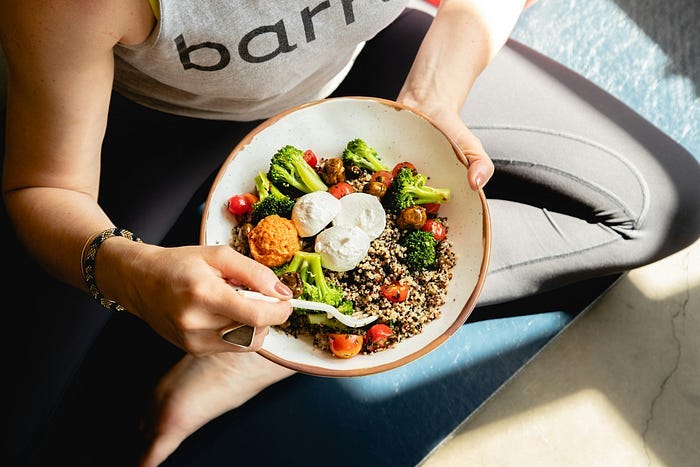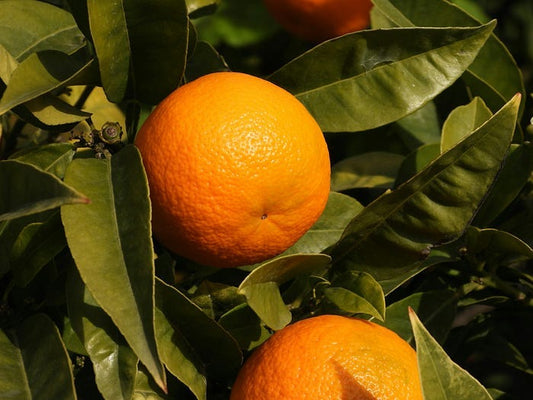
Procrastination and Your Diet. Why Do You Put Off Healthy Eating and How to Change That?
Oksana RozponczykShare
In my daily practice, I meet amazing people full of motivation and a desire for change. However, I often hear sentences that sound familiar to me too:
- “I’ll start my diet on Monday, this weekend is the last hurrah.”
- “I know I should plan my meals, but I just can’t focus on it right now.”
- “I’ll buy these vegetables, but they’ll probably go bad because I don’t have time to cook them.”
Sound familiar? This is procrastination — the act of delaying tasks — creeping into our eating habits and sabotaging our efforts. Today, I want to tell you how closely they are linked and what to do about it.
 Photo by Tara Clark on Unsplash
Photo by Tara Clark on Unsplash
How does procrastination affect your diet and lifestyle?
It’s not just a matter of “lack of willpower.” Procrastination is a complex mechanism, often associated with fear of failure, perfectionism, or feeling overwhelmed.
-
Unplanned, impulsive choices: When we put off meal planning, we reach for what is fastest and most readily available when hunger strikes — often these are highly processed, calorie-dense products. Research confirms that lack of planning is one of the key factors making it difficult to maintain a healthy diet [1].
-
Stress eating: By delaying tasks, we generate stress and tension for ourselves. And how do many of us react to stress? We reach for food — often sweet or salty snacks — which is supposed to provide temporary relief and a dopamine hit. This is a straight path to emotional eating [2].
-
The “all or nothing” cycle: “I ate one candy, so I’ve already ruined my diet, I might as well eat the whole bag. Fresh start on Monday!”. This perfectionist mindset is a beast fed by procrastination. It leads to restrictive resolutions that later prove too difficult to maintain, which again ends in a feeling of failure and… delaying the next attempt.
-
Neglecting more than just diet: Patients who procrastinate about food often do the same with physical activity (“I’ll go for a run tomorrow”), sleep (“just one more episode”), and regular check-ups. This leads to a holistic deterioration of health.
 Photo by Clark Douglas on Unsplash
Photo by Clark Douglas on Unsplash
How to overcome procrastination in the context of diet? Methods I use with my patients.
We fight the cause, not the symptom. Here are a few strategies that really work:
-
The “5 Minute Take-off” method: Did you promise yourself you’d cook lunch for 2 days, but the thought overwhelms you? Tell yourself: “I’ll only spend 5 minutes on it.” I’ll chop vegetables for 5 minutes. Often, just starting breaks the deadlock and it turns out we want to finish the task. This technique is based on the principle of “action first, motivation later.”
-
Change “I have to” to “I want to” and “why”: Instead of “I have to go shopping and buy broccoli,” think “I want to eat something nutritious that will give me energy for the rest of the day, which is why I will go shopping.” This subtle change in narrative shifts responsibility from an external obligation to an internal decision and value.
- Micro-goals — not macro-goals: The goal of a “healthy diet” is huge and vague. Replace it with micro-goals:
- Instead of: “From today on, I eat healthily”
- Try: “This week, I decide to add a portion of vegetables to every lunch” or “On Wednesday evening, I will plan and make a shopping list for Thursday.”
 Photo by Ahmet Kurt on Unsplash
Photo by Ahmet Kurt on Unsplash
Preparing your environment (“Nudge Theory”): Make the healthy choice easy and the unhealthy one difficult.
- A nudge in the right direction: Wash and chop vegetables right after shopping and put them in plain sight in the fridge. Place a ready-made salad in a jar at the front.
- Removing the bad option: Hide chips and sweets in the highest cupboard, where they are out of sight. Don’t keep them on the counter.
Self-compassion: This is the most important one. When you happen to delay an intention, don’t beat yourself up with thoughts of “I’m hopeless.” Treat it as feedback: “Okay, it didn’t work out today. What caused it to happen? What can I do differently tomorrow?”. Research shows that people who are compassionate towards themselves have greater internal motivation and procrastinate less [3].
Remember, procrastination is not laziness. It’s a battle with your own thought patterns. With small steps and a large dose of self-compassion, you can regain control not only over your diet but over your lifestyle.
And you, what do you most often get “stuck” on? Planning? Shopping? Cooking? If you need help, I do offer 1:1 consultations — we can find a way together!
“Health is the greatest human value”
AnaskoMed, Your Dietitian & Nutritionist
AnaskoMed Clinic is based on EBM (Evidence Based Medicine) medicine based on facts and reliable sources. Learn more about how we ensure the quality of our content at www.anaskomed.clinic
Remember that the information in this article is not a diet or education tailored individually, so if you have any health problems or your diet is more demanding, use the option of individual dietary cooperation or contact your doctor before using it.
Medical / Scientific Sources:
[1] Adriaanse, M. A., de Ridder, D. T., & de Wit, J. B. (2009). Finding the critical cue: implementation intentions to change one’s diet work best when tailored to personally relevant reasons for non-compliance. Appetite, 52(3), 765–768. (Research on the role of planning and implementation intentions in changing dietary habits).
[2] Adam, T. C., & Epel, E. S. (2007). Stress, eating and the reward system. Physiology & Behavior, 91(4), 449–458. (An article discussing the relationship between stress, stress response, food choices, and the brain’s reward system).
[3] Sirois, F. M., & Pychyl, T. A. (2013). Procrastination and the priority of short-term mood regulation: Consequences for future self. Social and Personality Psychology Compass, 7(2), 115–127. (Work examining the relationship between procrastination and mood regulation, including the role of self-compassion).



